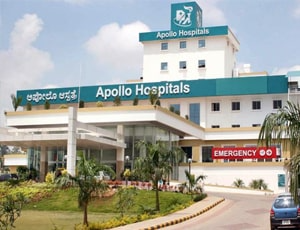General Surgery
Hematoma drainage
Hematoma drainage
Get expert hematoma drainage care with GetWellGo. Trusted hospitals and specialists for international patients seeking fast recovery and safe treatment.
Hematoma drainage surgery India
Hematoma drainage surgery, also known as hematoma repair, is an operation done to remove a pool of clotted or partially clotted blood (hematoma) that has filled up in tissue or an organ, which could be the result of trauma, surgery, or natural bleeding. The aim is to alleviate the pressure, avoid infection and ensure healing.
Types of Hematoma that need to be drained
- Subcutaneous hematoma- underneath the skin (traumatic or injected).
- Subdural or epidural hematoma- neurosurgical (top of the head).
- Intramuscular hematoma- inside muscle.
- Hematoma after surgery - in a surgical area.
- Breast, scrotal or abdominal hematoma- after surgery or trauma.
Indications for Surgery
Drainage is normally necessary where:
- The hematoma is huge or growing.
- The pain or pressure is very high.
- Infection (redness, pus, fever) is present.
- The hematoma pushes on the important organs (e.g., brain, vessels, or organs).
- Ice, compression and rest (conservative management) is not effective.
Procedure Steps
Preoperative Evaluation
- Physical test and examination (ultrasound, CT or MRI) to ascertain the size and location of the hematoma.
- Blood tests to determine clotting status.
Anaesthesia
- Local anaesthesia: small and superficial hematoma.
- Deep or intracranial hematoma General or regional anaesthesia.
Surgical Drainage
- This is done by making a small cut over the hematoma.
- Suction or low pressure evacuates clotted and liquid blood.
- An irrigating of the cavity with sterile saline is used to avoid infection.
- A drain can be incorporated (e.g. rubber drain or suction drain) in order to remain drained.
- The wound is stitched or left to heal secondarily, according to the risk of infection.
Postoperative Care
- Recurrence prevention pressure dressing.
- Pain treatment and antibiotics.
- Removal of drain (when present) 1 -3 days.
- Follow-up imaging in case of internal or brain haemorrhage.
Recovery Time
- Minor/subcutaneous hemorrhage: 7-10 days.
- It can be intramuscular or post-surgical hematoma: 2-3 weeks.
- Cranial hematoma (subdural/epidural): a few weeks to months with a period of rehabilitation in case of necessity.
Hematoma evacuation procedure India
Hematoma evacuation is a surgical operation to empty the stagnant blood (clotted or partially clotted) of the tissues, organs, or cavities. It aids in decongestion and infection prevention and normal functioning. The method employed is due to the hematoma site, size and cause.
Preoperative Preparation
- Physical assessment and medical history
- Image (Ultrasound, CT, or MRI) to determine size and location.
- Blood tests to investigate the level of hemoglobin and clotting factors.
- Assessment of anaesthesia (local, regional, or general anaesthesia as required).
Step-by-Step Procedure
Superficial or Local Hematoma Evacuation:
- Anaesthesia: Local/Regional anaesthesia is used.
- Incision: A small incision is done over the most fluctuating (soft) area.
- Evacuation: The clotted blood is evacuated using suction or light manual pressure.
- Irrigation: The cavity is rinsed with sterile saline so that debris is removed.
- Drain position: To eliminate reaccumulation, a small drain can be added.
- Closure: This incision is either sewed with sutures or is allowed to drain.
- Dressing: Compression bandage and sterile dressing over the dressing location are placed.
Deep or Intracranial Hematoma Evacuation:
-
Anaesthesia: General anaesthesia.
Incision and Access:
- Burr Hole Evacuation: Small opening made in the head to evacuate subdural/ epidural blood.
- Craniotomy: Large or organized hematomas are resected temporarily by removing the bone cover.
- Evacuation: The hematoma is evacuated.
- Irrigation and Hemostasis: Cavity is irrigated and bleeding vessels are cauterized.
- Closure: The bone flap is substituted (when needed) and the scaling is sutured.
- Drainage: Temporary closed suction drain can be used.
Postoperative Care
- Observation: Vitals, neurological, drainage output.
- Analgesics: To avoid infection and treat pain.
- Drain removal: The drain is usually removed after 13 days.
- Follow-up imaging: A follow-up of imaging is to be ensured to eliminate recurrence.
- Slow rehabilitation: In case of muscle or brain hematoma.
Best hospital for hematoma drainage India
- Artemis Hospital, Gurgaon
- Medanta-The Medicity, Gurgaon
- Fortis Memorial Research Institute, Gurgaon
- Max Hospital, Saket
Chronic subdural hematoma drainage India
Chronic Subdural Hematoma (CSDH) drainage is a medical procedure to debride old, clotted, or liquid blood between the surface of the brain and the outermost membrane of the brain (dura mater). This is a gradual hematoma that may develop weeks following a head injury that was mild and may lead to brain compression resulting in symptoms.
Overview
A chronic subdural hematoma normally involves:
- Old people, as a result of brain atrophy (shrinkage).
- Blood thinners (anticoagulants) patients.
- Persons who are head-traumatized or postoperative.
- Untreated CSDH may cause neurological impairment (headache, confusion, weakness, seizures or coma).
Indications for Drainage
Surgical drainage is recommended in case of:
- Thickness of hematoma more than 10mm or midline shift on the CT scan.
- Symptoms of neurology (headache, weakness, speech, confusion) are present.
- Increased intracranial pressure (ICP) or a sudden deterioration of the nervous system.
- Hematoma recurring or increasing following a conservative therapy.
Preoperative Evaluation
- CT / MRI of the brain: to identify the size and location of the hematoma and its density.
- Blood tests: To verify the coagulation profile and blood counts.
- Review of medications: If possible, discontinue anticoagulants.
- Anaesthesia examination: It is normally done under general or local anaesthesia with sedation.
CSDH Drainage Surgical Techniques
Mainly, there are three major surgical methods, depending on the hematoma features and the state of the patient:
The Burr Hole Drainage (Most Common)
- Anaesthesia: Local anaesthesia/general anaesthesia.
- Positioning: Head rose slightly.
- Incision: Small skin incision (2-3 cm) above the area of damage.
- Burr holes: These are holes that are punched through the skull.
- Evacuation: Suction and irrigation of the sterile saline are used to drain out the liquefied blood.
- Drainage positioning: A light sub dural drain is used and used 24-48 hours to enable the continuous drainage.
- Closure: Incision is sutured.
- This is so because it is a safe, simple, and most successful method (85-95%).
Twist-Drill Craniostomy (Minimally Invasive)
- Local anaesthetically drilled small hole (3-5mm).
- Catheter used to withdraw hematoma fluid gradually, in 24-48 hours.
- No suturing required, and usually can be performed at the bedside of elderly or high risk patients.
- Appropriate in patients who are not able to undergo a significant surgery.
Craniotomy (Repeat or Organized Hematoma)
- Greater bone flap is momentarily taken away.
- Clots and thick membranes are removed painstakingly.
- Drain and cavity irrigated.
- Bone flop was changed and the incision was done.
- Applied in the case of solid, multilayered and recurrent hematoma.
Postoperative Care
- Neurology: Level of awareness, response to the pupil, muscle strength.
- CT scan (24-48 hrs): To ascertain evacuation and the recurrence.
- Drain removal: After 1–2 days.
Medications:
- Anticonvulsants (antisepileptic drugs)
- Antibiotics (as a preventive measure)
- Glycosylated hemoglobin and blood pressure.
- Stages of post-recovery mobilization and physiotherapy.
Factors Affecting Hematoma drainage cost India
The following are the main factors which influence the cost of chronic sub dural hematoma (CSDH) drainage / hematoma evacuation in India:
Type of hospital
-
High end, privately owned hospitals are very expensive. Premium is often charged in specialty neurosurgery centres in relation to expertise and equipment. State hospitals are far less expensive.
City / location
-
The costs are likely to be much more expensive in metros such as Delhi, Mumbai, Bengaluru, etc., since overheads, cost of living, higher wages, etc. are higher, and in smaller towns / non-metro cities, they are cheaper.
Magnitude / intensiveness of the hematoma
-
Greater hematoma, midline displacement, organized clot, recurrence, membrane involvement etc. all require more operation time, more complicated methods (e.g. craniotomy vs burr hole), more resources.
Surgical technique used
-
Burr hole + drain or twist-drill or full craniotomy. Less invasive or less significant surgeries are less expensive. Craniotomy (removal of a bone cover, dealing with thick membranes) is a more costly one.
Anaesthesia type
-
General anaesthesia is more expensive. In case the procedure is practicable under local or sedation, it is less expensive. And there is duration of surgery and length of time of anaesthesia.
Duration of hospital stay
-
In case the patient has to remain in ICU, as compared to general ward, or remain many days to be monitored/rehabilitated, the cost will go up. Extended stay is a charge of the bed, the care, medications, food etc.
Preoperative/ postoperative care
-
Imaging (CT, MRI), laboratory tests, blood tests, treatment of coagulopathy (when taking blood thinners), close monitoring, drugs (anti-infectives, antibiotic seizures, where required), nursing attention. All add cost.
Surgeon’s fee + team fees
-
Neurosurgeon, anaesthetist, surgical assistants, microbiology etc. Surgeons with greater experience might be expensive.
Implants, special equipment, consumables
-
Application of drains, suction, irrigation fluid, special neurosurgical equipment, bone fixation hardware, etc. In the event of placing expensive implants or using disposables of high-quality, the cost is raised.
Condition / comorbid of the patient
-
Patients having other health problems (bleeding disorders, hypertension, heart problems etc.) might require additional precautions, extended observation, increased ICU stay or extra medication. These raise cost.
Additional complications
-
Hemorrhagic surgery, re-operation, infections, long ICU hospitalization etc. will increase expenses.
Room type / amenities
-
Deluxe facilities, private room, AC vs general ward. Increase in amenities increases the bill.
Surgery / emergency time of the day
-
Surgeries performed under emergency conditions are usually more expensive (night / weekend premiums, mobilization of resources in an emergency).
Conclusion
Hematoma drainage surgery — including chronic subdural hematoma evacuation — is an essential, frequently life-saving procedure intended to relieve pressure, avoid infection, and restore normal function in compromised tissues or brain structures. Early diagnosis, expert neurosurgical treatment, and appropriate postoperative care greatly enhance recovery and minimize recurrence threats. India's world-class neurosurgical facilities and expert specialists make it an affordable option for domestic as well as international patients seeking hematoma drainage treatment.
Affordable hematoma removal in India GetWellGo
GetWellGo is regarded as a leading supplier of healthcare services. We help our foreign clients choose the best treatment locations that suit their needs both financially and medically.
We offer:
- Complete transparency
- Fair costs.
- 24 hour availability.
- Medical E-visas
- Online consultation from recognized Indian experts.
- Assistance in selecting India's top hospitals for hematoma removal treatment.
- Expert hematologist with a strong track record of success
- Assistance during and after the course of treatment.
- Language Support
- Travel and Accommodation Services
- Case manager assigned to every patient to provide seamless support in and out of the hospital like appointment booking
- Local SIM Cards
- Currency Exchange
- Arranging Patient’s local food
FAQ
1. How long is the surgery for hematoma drainage?
- The surgery lasts 30 minutes to 2 hours, depending on the size and location of the hematoma and the surgical approach.
2. How long is the hospital stay after the surgery?
- The hospital stay is 2 to 5 days for monitoring and recovery. Intracranial hematoma patients might need extended ICU monitoring.
3. Is hematomas drainage surgery safe in India?
- Yes. India boasts world-class neurosurgical facilities with state-of-the-art imaging, operating microscopes, and skilled neurosurgeons. The results are on par with international standards but at much lesser expenses.
4. Can chronic subdural hematoma recur after an operation?
- Yes, recurrence does happen in approximately 5–20% of cases, particularly in older individuals or individuals who are on blood thinners. Repeat follow-up imaging is instrumental in picking up and treating early recurrences.
TREATMENT-RELATED QUESTIONS
GetWellGo will provide you end-to-end guidance and assistance and that will include finding relevant and the best doctors for you in India.
A relationship manager from GetWellGo will be assigned to you who will prepare your case, share with multiple doctors and hospitals and get back to you with a treatment plan, cost of treatment and other useful information. The relationship manager will take care of all details related to your visit and successful return & recovery.
Yes, if you wish GetWellGo can assist you in getting your appointments fixed with multiple doctors and hospitals, which will assist you in getting the second opinion and will help you in cost comparison as well.
Yes, our professional medical team will help you in getting the estimated cost for the treatment. The cost as you may be aware depends on the medical condition, the choice of treatment, the type of room opted for etc. All your medical history and essential treatment details would be analyzed by the team of experts in the hospitals. They will also provide you with the various types of rooms/accommodation packages available and you have to make the selection. Charges are likely to vary by the type of room you take.
You have to check with your health insurance provider for the details.
The price that you get from GetWellGo is directly from the hospital, it is also discounted and lowest possible in most cases. We help you in getting the best price possible.
No, we don't charge patients for any service or convenience fee. All healthcare services GetWellGo provide are free of cost.
Top Doctors for General Surgery
Top Hospitals for General Surgery
Contact Us Now!
Fill the form below to get in touch with our experts.







